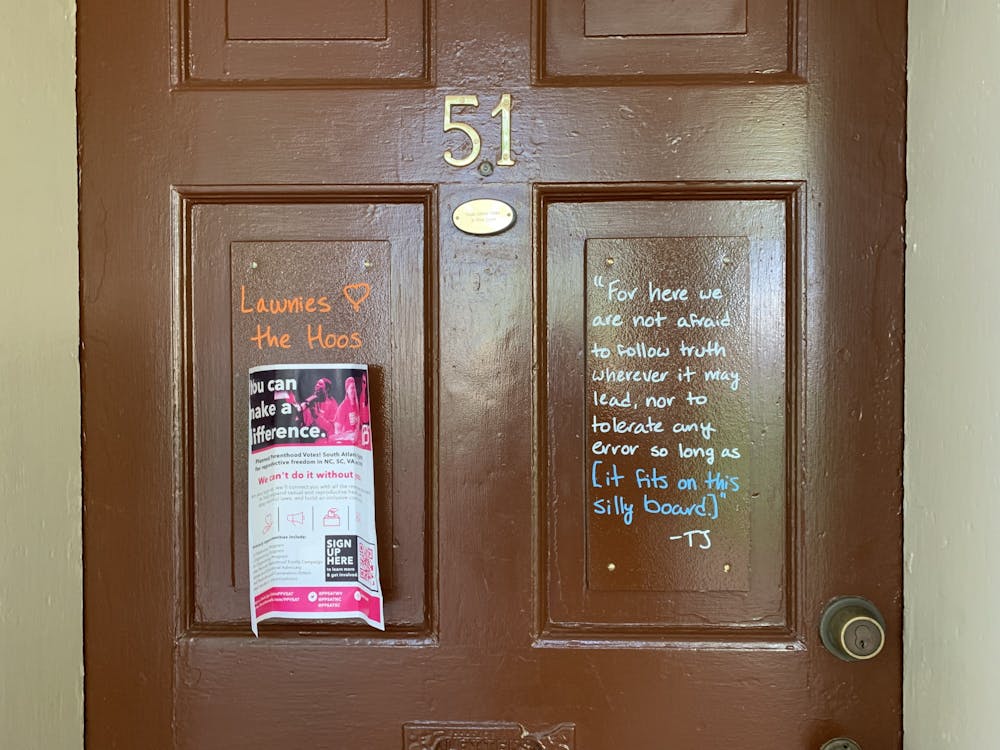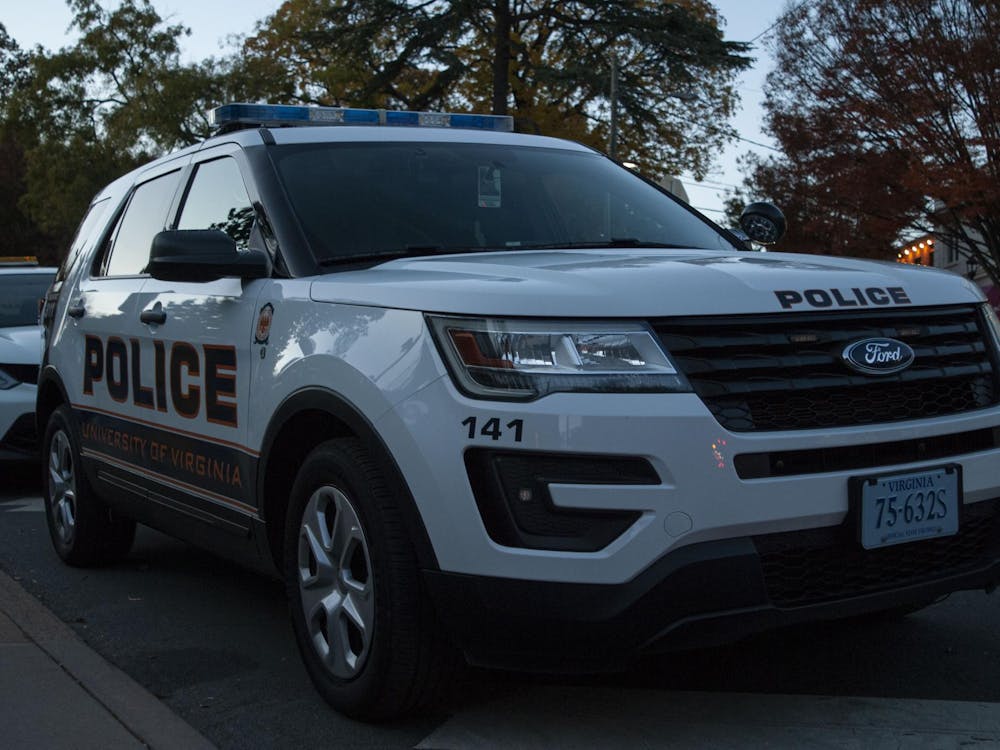Lea en español
Lawn residents are now permitted to post signs of up to 11 inches by 17 inches on their doors, a change from the contentious policy that went into effect this fall that restricted posters to those that fit within message boards provided by Housing and Residence Life.
Robyn Hadley, vice president and chief student affairs officer, said in an email statement to Lawn and Range residents Friday that the message boards on Lawn doors were not uniformly sized — as such, some were able to fit posters that others were not.
“Thanks to the input of so many of you and several productive conversations between residents, our student affairs team, the President’s Office, and members of the Board of Visitors, we’ve agreed upon a revised policy that we hope will achieve the intended spirit of the original addendum with added clarity for all of us,” Hadley said.
Per the new policy, individual postings may be no larger than 11 inches by 17 inches and all postings must be affixed only to the two provided message boards. To prevent the confusion caused by the non-uniform size, student postings can extend beyond the boundaries of the message boards, provided that they remain within the specified size.
Still, signs can only be affixed to the boards and must not extend below the top of each room’s mail slot or above the room number. The updated policy is effective Jan. 1.
These changes in signage regulations follow controversy last year over Lawn room signs displayed last fall and spring that critiqued the University's history of enslavement and accessibility. Many Lawn residents criticized the policy as an attempt to silence students and censor free speech, particularly in the context of the University's recently-approved public statement on free expression and free inquiry.
Earlier this year, Emma Camp, fourth-year College student and Lawn resident, protested the restrictions by posting a full-length poster containing the text of the First Amendment on her Lawn room door until Housing and Residence Life arrived to take it down. Camp said she is mostly happy with the updated policy given that it takes into consideration the proposal she made.
“I’m quite happy with the new policy,” Camp said. “I wrote the first draft of it myself, so to see a policy proposal I drafted be enacted mostly unchanged is wonderful.”
Not all Lawn residents are happy with the new changes, however. Alex Moreno, fourth-year College student and Lawn resident, said he thinks there is still some concern with the updated rules for the message boards.
“While this version allows us more square footage to use on our door, I think that the new policy has the same issues as the old iteration regarding the fact that ultimately they are restricting the door space in what feels like a more or less arbitrary manner,” Moreno said. “I recognize that the University has an interest in regulating the doors, but I don’t agree with U.Va.’s policy for the same reasons as the last version — it is a reactionary policy and doesn’t seem to really have much benefit for the academical village.”
Camp said that even though the restrictions were not completely removed, she thinks the new policy is ultimately a step in the right direction.
“Obviously, I would have ideally liked to see the rules removed entirely,” Camp said. “However, I think a compromise is still productive in this case, and I’m thankful that administration was willing to work with me on this.”







